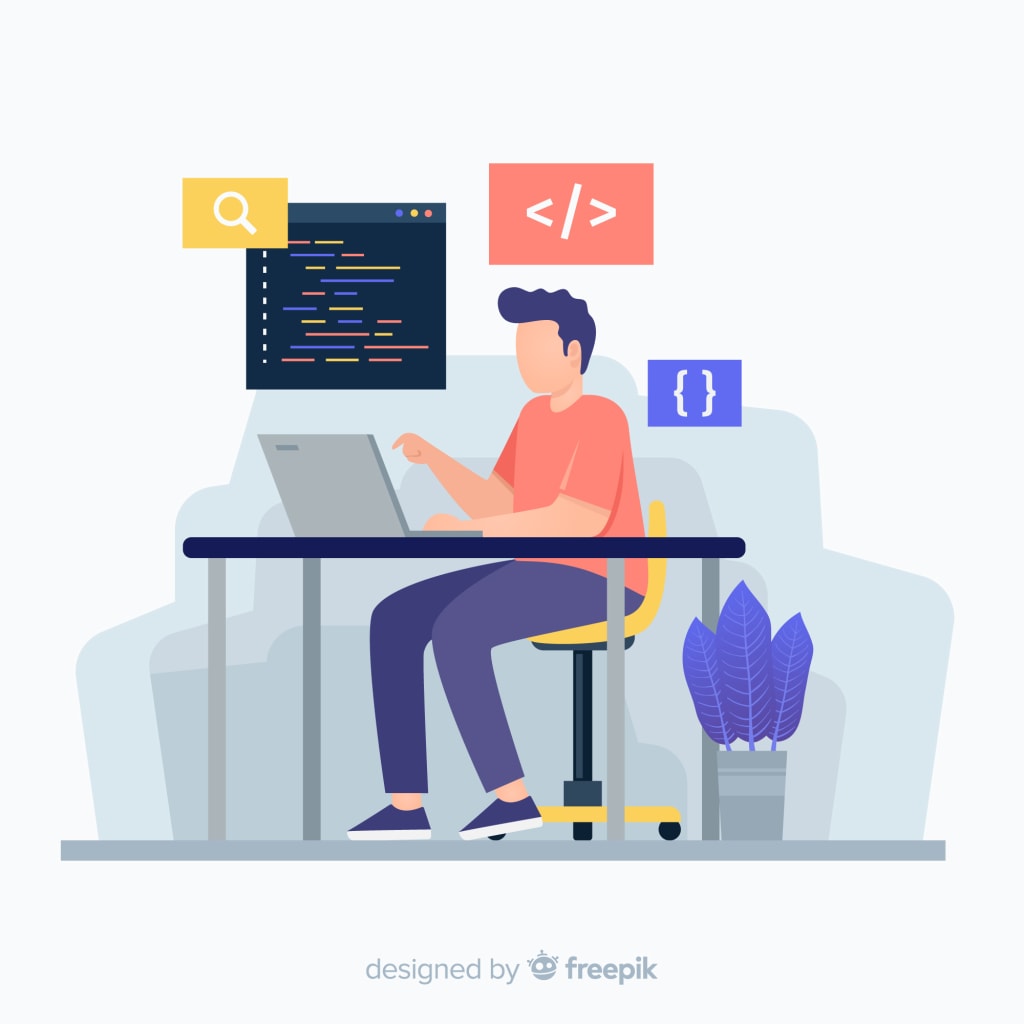Building Your Programming Arsenal: Courses to Master Core Computer Science Concepts
Understanding Core Concepts of Computer Science

In today's fast-developing technological world, programming skills have become a goldmine. Be it software or dynamic websites or artificial intelligence, CS is the beginning. In this article, you will be armed with a roadmap on how to multiply your programming arsenal, exploring some of the key concepts of CS, and courses through which you can master them.
Table of Contents
Level Up Your Logic: Unveiling the Power of Programming Fundamentals
Taming the Beasts: Conquering Programming Languages
Data Structures Demystified: Organizing Your Programming Toolkit
Algorithms: The Recipes of Computing Power
Object-Oriented Programming: Building Modular Software
Charting Your Course: Exploring Master Computer Science Options
Beyond the Classroom: Fueling Your Programming Journey
Unveiling the Power of Programming Fundamentals: Level Up Your Logic
Programming is a bit like using a sledgehammer. Learning how to wield one should come before you set out to work on anything serious. Here's how you get started in programming:
Problem-Solving Prowess: At the core of it all, programming is about solving problems and breaking down big problems into small, step-by-step logical procedures. Courses that focus on the basics of programming provide the correct way to think critically and approach any challenge in programming.
Algorithmic Thinking: Learn to think algorithmically, or develop the capability to design step-by-step instructions that a computer can follow to solve a problem. This is the basis for all programming languages.
Control Flow Statements: If-else statements and loops are control flow statements. Mastery in it will allow your programs to make decisions and execute code based on certain conditions.
Learning these core concepts helps you approach programming with structure and logic, which are the foundations for understanding more advanced topics.
Taming the Beasts: Conquering Programming Languages
Programming languages are just modes of transportation for converting one's thoughts into actions understood by the computer. Here is how to select the correct one that you will want to add to your arsenal:
Versatility in Python: Often recognized as the language of learning, Python is not only clear and human-readable but also serves well for the beginner. The rich scope of libraries it deals with makes it greatly applicable from web development to data science.
Object-Oriented Power with Java: Java is one of the most widely used object-oriented languages. Knowing Java gives you the ability to create clear, modular software of any magnitude. With millions of developers actively engaged in the community, you can expect Java to bring you the best available resources.
Web Development with JavaScript: The undisputed king of web development is JavaScript. Knowledge of JavaScript will help you make interactive web pages, dynamic user interfaces, and even single-page applications.
Working on different languages increases diverse programming knowledge and expands your skill set. Always remember that every language has some weakness and strengths. So, you take up any language according to your interests and the desired career path.
Data Structures Demystified: Organizing Your Programming Toolkit
Data structures are the building blocks of writing effective programs. Just as a toolbox should be well-arranged, knowledge in Data Structures is essential to dealing explicitly with:
Arrays and Lists: These are basic data structures involved in holding collections of items in a well-defined order. Knowledge of the same will help you easily access and manipulate information that is tent within your programs.
Stacks and Queues: Think of a stack as something like a pile of plates — LIFO. Or a queue like the way you would stand in line at a store — FIFO. Understanding each of these will allow you to adjust the flow of data for any programming situation in which you might find yourself.
-Hash Tables and Trees: Hash tables are one way of storing information in such a way that it can be retrieved with ease and speed, if the given key is provided. Similarly, trees are sets of data forms that organize information in a hierarchical manner, ensuring that search and sort operations can be undertaken expediently. Learn these structures, and you will now be able to handle complex scenarios of data organization inside your programs.
Algorithms: Recipes of Compute Power
Algorithms are the basic recipes in which the computing device derives the potential to handle tasks or problems. Here are a few reasons as to why an algorithm must be learned by the programmer:
Efficient Problem-Solvers: Recipes that give efficient solutions to a wide array of problems. Knowing them, you are in a position to choose the right algorithm for the task at hand, thus optimizing performance of your program.
Thinking Like a Computer: The study of algorithms helps you develop computational thinking skills, enabling you break down complex problems into smaller, manageable steps that the computer can execute.
Common Algorithm Families: Mastering essential algorithm families like sorting algorithms, such as bubble sort and merge sort; and searching algorithms like linear search and binary search equips you to tackle diverse programming challenges.
Variables and Data Types: Variables are exactly what they sound—named, mutable placeholders where you may put in information within the program to retrieve at a different time. With this, you will get to know different data types, such as integers, strings, or booleans, which will help you represent different kinds of information.
Functions: These are codes' blocks that can be recycled, which carry out a particular task. Learning to be able to define and use functions helps in code modularity, reusability, and better program maintainability.
Learn these basic concepts and the way you would think about programming systematically and logically, and this becomes the foundation for learning more complex topics.
Beyond the introductory choices, there are dozens of additional programming languages to learn. Here are some examples:
- C++: A Beast of a Different Nature: One of the most popular programming languages on the face of the earth today, C++ is an intense, object-oriented programming language that is heavily used in game creation, system software development, and high performance computing. It requires the strength of a solid programming foundation, but it provides phenomenal control of hardware resources and memory management.
C#: The Language for .NET Development: C# is a full-scale object-oriented language, specially made under the .NET development framework. It's a popular tool used for creating Windows applications, web services, and gaming applications. Once you are well-versed in C#, you have at your disposal a large number of tools and libraries across the .NET ecosystem.
Swift: Building Apple Apps Swift is a modern, object-oriented language developed by Apple for development on iOS, iPadOS, macOS, watchOS, and tvOS, with clean and concise syntax that's easy to read. Master the Swift language and build native Apple apps.
Data Structures Demystified: Organizing Your Programming Toolkit (continued) Linked Lists A Linked List is a dynamic data structure in which each element (often called `node`) comprises the data and reference to the next node in the sequence. They do not have a fixed size and provide a great deal of flexibility in insertion and deletion of elements, but can be slower for random access than arrays.
Graphs: Graphs represent relationships between things. Mastering graphs, hence you will be able to model social networks, navigation systems, and recommendation algorithms.
Having a notion and working with proper data structures lets you write efficient and well-organized programs working with big data.
Algorithms: The Recipes of Computing Power
Recursion: Recursion is the process of a function calling itself inside its definition. When you are a ninja at working with recursive algorithms, you can swing through problems with grace and poise, especially those problems where a big task can somehow be simplified into smaller similar tasks.
Being familiar with algorithms gives you the power to write programs in which you can problem solve in a way that is very resource-friendly and simple.
Object-Oriented Programming: Modular Building
Object-oriented programming is a paradigm for the structuring and organizing of your code. Here's why you need to master OOP:
Modeling the real world: OOP enables you to model real-world entities — objects, with attributes, and methods. This is the basic theory of increasing reusability and maintainability of code through OOP.
- Classes and Objects: These are basically the blueprint or skeletal form of a class from which objects are drawn. Even the objects, in turn, encapsulate both the data and its behavior. The mastery of OOP lends one the ability to develop software components that are modular and reusable.
Inheritance and Polymorphism: Basically, inheritance allows us to create new classes (subclasses) from existing classes (super classes), while polymorphism refers to the ability of objects from different classes to respond to the same method calls in different ways. Because of these, they also automatically create features of reusability and flexibility.
Mastery of OOP gives you the power to implement complex software systems with minimal complexity in the separated components, hence resulting in more maintainable and scalable programs.
Charting Your Course: Exploring Master Computer Science Options
Having got the basics "down," a Master Computer Science course can take your skills deeper and possibly allow you to home in on a specific area of concentration. Here are some of the most popular options.
- Master of Science in Computer Science (MSCS): Very general, this admittedly trains on basic and core CS concepts. These students can begin specializing a little bit—say, in artificial intelligence, software engineering, or security.
Master of Software Engineering (MSE): This program focuses around the software development lifecycle, software design methodologies, and best practices for building robust and maintainable software systems.
Master Computer Science courses usually demand an undergraduate degree in computer science or an equivalent. These courses can be taken full-time, part-time, or through online platforms, depending on the program and your needs.
Beyond the Classroom: Fueling Your Programming Journey
The course isn't the end of learning anything. You keep it real for this programming with the following:
Practice Makes Perfect: Keep practicing those new coding skills. Enhance your knowledge with online coding competitions, contribute to open source, or just develop personal projects.
About the Creator
jinesh vora
Passionate Content Writer & Technology Enthusiast. Currently Working in BIA as a Digital Marketer.
Enjoyed the story? Support the Creator.
Subscribe for free to receive all their stories in your feed. You could also pledge your support or give them a one-off tip, letting them know you appreciate their work.






Comments
There are no comments for this story
Be the first to respond and start the conversation.